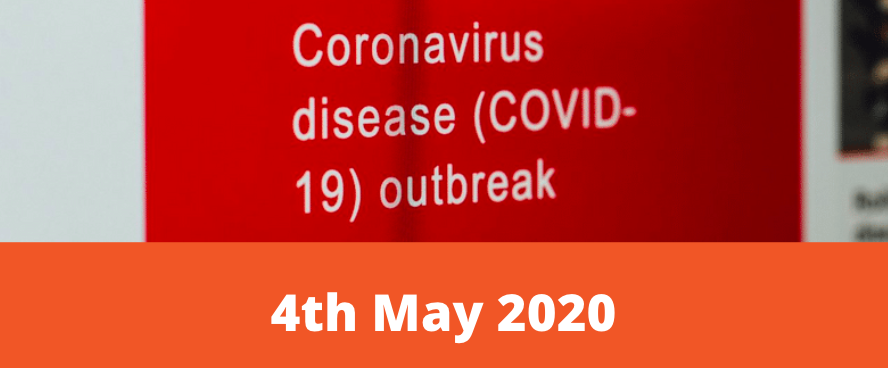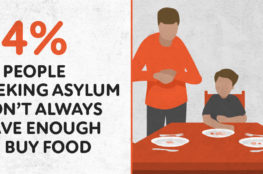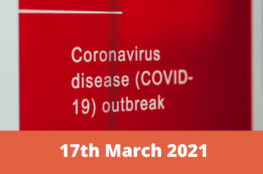Our weekly summary of ongoing advocacy initiatives, interesting surveys and research, government developments and useful resources. Contact us if you’d like to get this update directly into your inbox!
1. Ongoing advocacy initiatives
New Campaign Action: Write to your MP to demand an increase in asylum support rates!
Alongside Refugee Action, we’ve launched a ‘Write to your MP’ action demanding urgent action to increase asylum support rates. We’re asking our partners to write to their local MPs and ask them to take up the issue with the Home Secretary. This follows on from previous advocacy initiatives across the sector – including a joint letter to the Home Secretary.
We know that poverty and isolation have been hard-baked features of the asylum system long before COVID-19. Urgent reform is needed to stop people seeking asylum from falling further into poverty and destitution during this crisis, and beyond.
In the context of the current pandemic, the Home Office must ensure that asylum support rates also receive the same £20 COVID-related uplift as Universal Credit. Further, as a more permanent solution, the link with mainstream benefits should be reinstated by setting asylum support at 70% of Universal Credit (the level asylum support rates were set at against income support until 2008). This would ensure people seeking asylum are able to meet their needs both during this pandemic, and beyond.
Want to write to your MP? You can either use our template letters, designed for organisations who want to include additional evidence and case studies on the issue (get in touch with your regional campaigns manager to find out more), or the Refugee Action e-action here.
Want to support the campaign on social media? There’s some excellent graphics available for use on social media platforms – such as these animations from Refugee Action, and this excellent video from Freedom From Torture. For examples of supportive tweets, check our Refugee Action and Asylum Matters’ twitter timelines!
Home Affairs Select Committee inquiry into preparedness for COVID-19
On Wednesday 29th April, the Home Secretary and Home Official officials appeared before the Home Affairs Select Committee to answer questions in relation to the department’s preparedness for COVID-19. Whilst the session was wide-ranging, Stuart McDonald (SNP) asked the Home Secretary directly about the adequacy of asylum support rates in the context of COVID-19.
The Home Secretary replied: “We look at our policies; we look at them all the time […] We are making sure that people get the support they need. If we do need to do more around funding support, then that is something that the Department will absolutely look at. However at this particular stage, our policies and our measures are working, and I have not had particular incidences, cases or examples.”
Shona Dunn (Second Permanent Secretary, Home Office) followed on to say: “On the overall level of financial support, the Home Office does of course look at the level of financial support to asylum seekers on a very regular basis, and we will undertake that annual review of the financial support to asylum seekers. […] We do keep these matters under review – this is under review.”
The full transcript is now available online.
Women and Equalities Committee inquiry into COVID-19 and the impact on people with protected characteristics: Extended call for evidence
Other Parliamentary Activity
New Advocacy Initiatives
Refugee Rights Europe and others have launched a new petition calling for the opening of access to asylum at the UK-France border. The petition, launched as part of the wider campaign calling for access to UK asylum at the UK-France border, calls for people to be able to make their asylum claims at the UK border points in northern France, as well as for identification and accelerated relocation for the most at-risk to make their asylum claims, with all the necessary safeguards in place.
You can read more about the #ASaferWay campaign here.
The Jesuit Refugee Service, Women for Refugee Women and 30 front-line facing organisations working with asylum seekers, refugees, and those with irregular immigration status have written to the Prime Minister asking that the government grant a period of “Leave to Remain” to everyone with insecure immigration status.
You can read more about the #StatusForAll campaign here.
Open letter sent to Home and Foreign Secretaries from family members affected by cancellations of Dublin III transfers. As part of their advocacy with the UK, Greek and French authorities for the expedition where possible of Dublin III family reunion transfers that were cancelled as a result of COVID-19, Safe Passage have facilitated a letter to the Home and Foreign Secretaries from the family members affected. This powerful letter has been published as an open letter, which individuals can now sign or show their support by sharing on Facebook or Twitter.
2. Ongoing surveys and research
Privacy International and Open Rights Group have extended the deadline to complete their survey which aims to better understand the capacity and needs of organisations in the migration and refugee sector to respond to the growing importance of technologies and data governance. The survey is here and will be open until 18 May 2020.A group of academics from the London School of Economics have published preliminary evidence from a new survey that looks at public attitudes to migration and healthcare. Their polling suggests that the majority of respondents supported granting free medical care to all irregular migrants, as well as granting permanent leave to remain to all frontline health workers. You can read a summary of their findings, as well as further breakdowns of the polling, on LSE’s website here.
As part of the collective efforts to inform responses to the COVID-19 crisis, British Future is producing a weekly update on shifting public attitudes – pulling together key findings from the many polls that are being published. This week’s update can be viewed here.
Doctors of the World would like to hear your views via a brief survey on their translated essential Covid-19 guidance based on NHS and Government health advice and information, available in 48 languages in written format and 10 language in video format. Your views will help them to improve the accessibility of these resources to facilitate reaching out to migrant and asylum communities.
3. Home Office and Government Developments
New Home Office Factsheets on Asylum Accommodation, Support and Applications
On the 26th April, the Home Office published an online fact sheet outlining key information in relation to asylum accommodation and asylum applications. This outlines some of the changes the Home Office have made to the asylum support system in relation to COVID-19.
On the 29th April, the Home Office shared another document – ‘Asylum Accommodation and Support: Factsheet for the Voluntary and Community Sector’ – outlining “key changes that have been made to assist those seeking asylum in accessing the services they need during this time.” A similar factsheet was sent to Strategic Migration Partnerships – now accessible on the West Midlands Strategic Migration Partnership website here.
4. Resources
The NHS volunteer responders scheme, which offers a range of support for people in need, is now open for self-referrals. Self referrals can be made by calling 0808 196 3646 (8am to 8pm). The Royal Voluntary Service web page provides more information about the categories of people they will assist and the support on offer.
5. Media
In this Op-Ed in the Huffington Post Victoria Mleya gives powerful testimony of the difficulties of living in asylum accommodation during the lockdown and details the struggle to make ends meet whilst living on asylum support rates.This week on BBC radio 4’s Sunday programme, Sarah Tether from the Jesuit Refugee Service answered the question of whether the Government has ignored the plight of asylum seekers and refugees in its response to the Coronavirus. She spoke of the heart-rending stories that charities are hearing from the ground, outlining the devastating impact of the pandemic on communities with vulnerable immigration status and making the case that we cannot afford to leave anyone out in our response to this public health crisis. You can listen here at 18.52 minutes into the programme.
And for a bit of good news to start the week, here’s 11 positive stories from amazing colleagues across the migration sector who are making a difference during COVID-19. Thanks IMIX!




